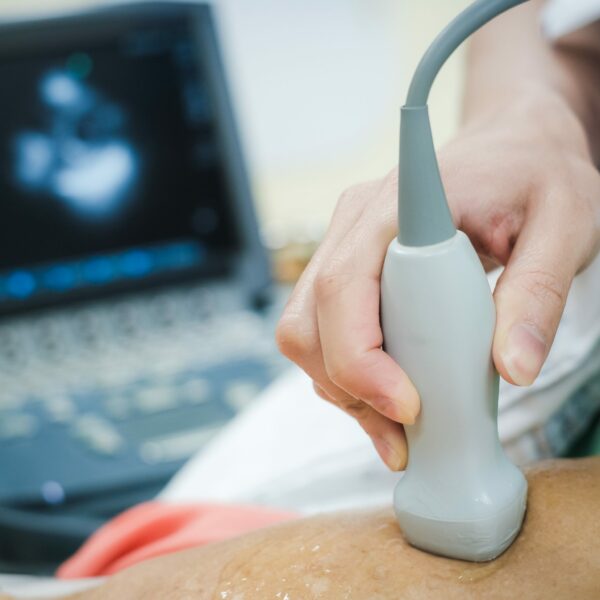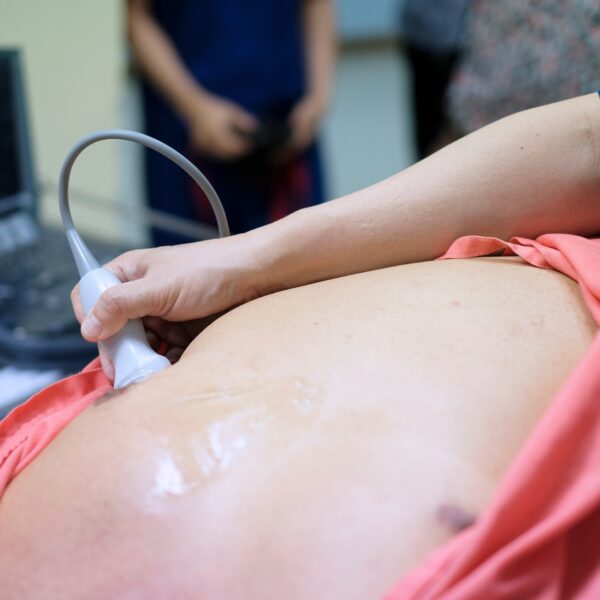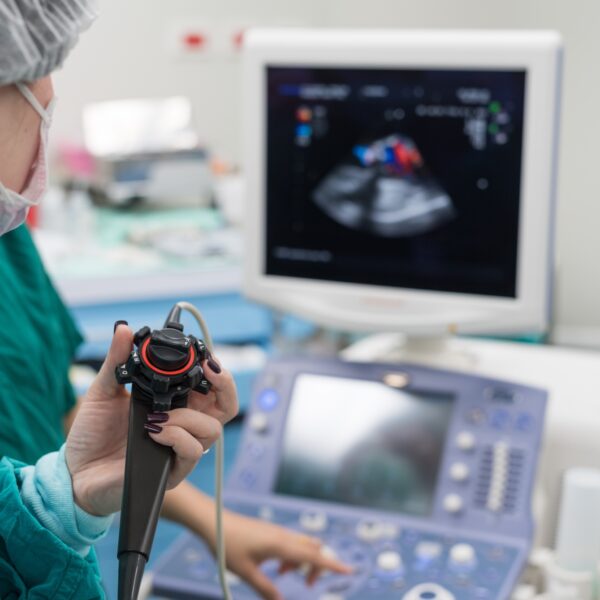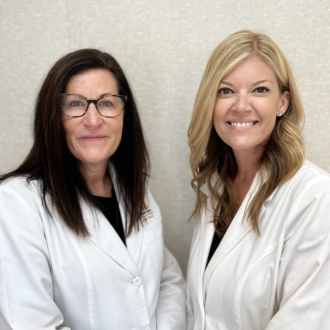Echocardiograms
Diagnostic Power for Cardiac Health
Echocardiograms, non-invasive diagnostic tests that use sound waves to create images of the heart, are powerful tools for both detecting and monitoring the condition of the heart. At Our Family Health, we provide in-office echocardiograms for our patients to help diagnose heart problems and to assist in the management of long-term heart health.
What is an echocardiogram?
An echocardiogram is an ultrasound of the heart that evaluates how the heart is pumping and sees the anatomy of the heart and the aorta near the heart and heart valves.

What is an Echocardiogram Used for?
They can help diagnose a wide range of heart conditions, including:
- Heart valve disease
- Heart failure
- Congenital heart defects
- Cardiomyopathy
- Pericardial disease
- Aortic aneurysm of the part of the aorta that is near the heart
- Tumors
In addition to diagnosing these conditions, an echocardiogram can also provide information about blood flow through the heart, which can help doctors assess the severity of a heart condition and plan appropriate treatment.
Echocardiograms are not used to determine if there are blockages in the blood vessels that supply the heart muscle. That requires a nuclear stress test.

What Happens During an Echocardiogram?
During one you will be asked to lie down on an examination table. An ultrasound technician will place a small handheld device called a transducer on your chest and moved around to obtain different images of your heart. If you have had an ultrasound in the past this is a very similar technique.
The transducer emits high-frequency sound waves that bounce off your heart and create detailed images of your heart’s structure and function. You may hear a swishing sound during the procedure, which is the sound of blood flowing through your heart.

Echocardiogram Frequently Asked Questions
Do I have to do anything special to prepare for an echocardiogram?
You will need to avoid caffeine six hours prior to your scheduled echocardiogram.
Are there any side effects from an echocardiogram?
There are no side effects from them. It is a fully non-invasive procedure and when you walk out of the Our Family Health office you will be able to resume your normal activities.
How long does an echocardiogram take?
Most take 40-60 minutes to complete. When patients have them at Our Family Health, our medical team works to make sure that your visit is as efficient as possible while still ensuring that we have all the necessary diagnostic information to confidently move forward with treatment next steps. Our echocardiograms will be read by an experienced cardiologist.
How much does an echocardiogram cost?
They are typically covered by insurance. Please contact your insurance provider to understand your insurance coverage. Please call the medical center if you are uninsured and would like to receive pricing information.
Subscribe to Our Newsletter
Sign up to receive our latest news, events, and integrative help tips along with Dr. Plaster’s resource “Five Tips to Better Health."

Listen to Between Two White Coats
Learn about today’s most pertinent medical and wellness topics on our podcast.
Listen Now